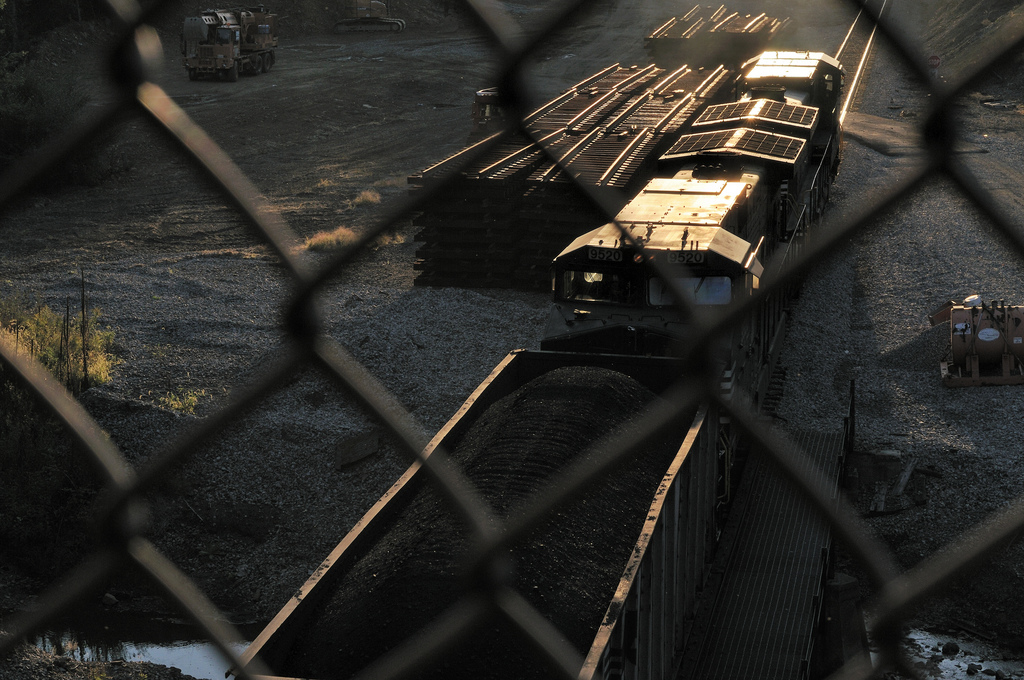The tsunami of bankruptcies that overwhelmed the US coal industry over the past two years has largely subsided—but it left an unprecedented path of financial wreckage in its wake, wiping out shareholders, decimating balance sheets, and stranding billions of dollars in loans that will never be repaid.
There’s been an unexpected upside to this financial chaos, however: an obscure federal subsidy to the coal industry has been all but eliminated. The subsidy, called “self-bonding,” was essentially a loophole in federal law that allowed “financially healthy” coal companies to avoid setting aside money to clean up their mines. (Here’s our simple “explainer” on the topic.) Yet as the massive wave of coal industry bankruptcies amply demonstrated, coal companies that seemed healthy on paper could quickly descend into insolvency, potentially leaving no resources to pay to clean up their played-out mines. As state and federal regulators realized that they faced a looming mine cleanup crisis they began to rein in self-bonding—and some industry executives acted to replace their self-bonds on their own terms before regulators beat them to it.
Vast swaths of mined land that were once protected by little more than a wink and a promise will be covered by more financially robust cleanup assurances.
On Monday Peabody Energy became the latest company to announce that it would no longer take advantage of the self-bonding loophole, and would put firmer cleanup guarantees in place. Cloud Peak Energy, which didn’t go through bankruptcy, voluntarily exited self-bonding earlier this year, and peers Arch Coal and Alpha Natural Resources (now Contura Energy) replaced their self-bonds as they emerged from bankruptcy.
This means that all of the top coal companies in Wyoming’s Powder River Basin have either stopped, or committed to stop, the practice of self-bonding. Self-bonds remain in place at one of the basin’s smaller mines, but vast swaths of mined land that were once protected by little more than a wink and a promise will be covered by more financially robust cleanup assurances.
Self-bonding always suffered from three fundamental flaws. First, the self-bonding loophole shifted risks from coal companies onto the public—potentially forcing cash-strapped states to pay for mine cleanup, or leaving local communities and downstream neighbors to deal with the consequences of living near an unreclaimed mine. Second, the loophole amounted to a direct subsidy to the coal industry, allowing coal companies to avoid paying for mine cleanup insurance or setting aside cash or other resources to guarantee mine reclamation. Third, the rules for deciding whether a company is “healthy” were completely broken, and allowed many companies to remain eligible to self-bond right up to the brink of bankruptcy. Self-bonding has led to a looming mess in West Virginia: one coal company exited bankruptcy without enough money to replace its self-bonds. Its West Virginia mines are still operating with no guarantee that there will be enough money to reclaim the land after the mines are closed.
For several years I’ve been arguing that the right way to deal with self-bonding is to eliminate it completely. Recent history has proven beyond a doubt that it’s a risky practice rife with abuse. Barring that, federal regulators could rewrite the rules, making sure that companies with even a hint of financial weakness should be required to put up stronger cleanup assurances. Of course, the first solution requires the US Congress to act, while the second requires the administration to do so. Neither seems likely at present.
In the meantime, I count Peabody’s withdrawal from self-bonding as good news. If the company thrives after emerging from bankruptcy, it will prove that coal companies don’t actually need the subsidy at all. But if the company’s finances falter, it will demonstrate that self-bonding was always a risky choice for a high-risk industry that’s as likely to go bust as it is to boom.
[list_signup_button button_text=”Like what you|apos;re reading? Get our latest fossil fuel research right to your inbox.” form_title=”Fighting Fossil Fuels” selected_lists='{“Fighting Fossil Fuels”:”Fighting Fossil Fuels”}’ align=”center”]


Comments are closed.